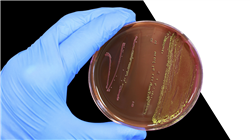University certificate
The world's largest faculty of pharmacy”
Description
With this Postgraduate certificate, you will examine how Multidrug-Resistant Bacteria are spread through food, addressing from agricultural and livestock practices, to industrial food production processes”

According to recent reports from the World Health Organization (WHO), an alarming number of bacteria found in food products, such as meats and vegetables, show resistance to multiple commonly used antibiotics. It also highlights the importance of strict regulatory measures to control the misuse of antibiotics in food production and to promote effective surveillance systems to detect and prevent the spread of these bacteria.
Therefore, this Postgraduate certificate is born, which will cover the complex problem of antimicrobial resistance in the food context. In this sense, the critical role played by the food chain in the spread of antimicrobial resistance will be analyzed, addressing in detail multi-resistant strains such as ESBL, MRSA and those resistant to colistin. In addition, the importance of the One Health approach will be explored to understand how human, animal and environmental health are interconnected in this global phenomenon.
The study plan will also delve into the dissemination of antimicrobial resistance through different food vectors. Therefore, the spread of resistant bacteria in foods of animal and vegetable origin, as well as through water, will be examined in detail, identifying critical points in the production and distribution of food where these bacteria can proliferate and be transmitted.
Pathogens such as Salmonella spp., Campylobacter spp., Escherichia coli and Staphylococcus spp. will also be covered, highlighting their resistance profiles to different antimicrobials and their impact on public health. Advanced strategies to prevent and control the spread of these resistances along the food chain will also be discussed, including preventive measures in primary production, slaughterhouses and food industries.
Therefore, TECH has launched a comprehensive and fully online university program, accessible from any electronic device with Internet access. Additionally, it is based on the revolutionary Relearning methodology, which focuses on the systematic review of key concepts to ensure a solid and fluid understanding of the contents.
You will acquire specialized knowledge about the main pathogenic bacteria involved, such as Salmonella, Campylobacter, Escherichia coli and Staphylococcus. With all the quality guarantees that TECH offers you!"
This Postgraduate certificate in Multidrug-Resistant Bacteria in the Food Chain contains the most complete and up-to-date scientific program on the market. The most important features include:
- The development of practical cases presented by experts in Microbiology, Medicine and Parasitology
- The graphic, schematic and eminently practical contents with which it is conceived gather scientific and practical information on those disciplines that are indispensable for professional practice
- Practical exercises where self-assessment can be used to improve learning.
- Its special emphasis on innovative methodologies
- Theoretical lessons, questions to the expert, debate forums on controversial topics, and individual reflection assignments
- Content that is accessible from any fixed or portable device with an Internet connection
You will investigate challenges and practices that can contribute to the proliferation of bacterial resistance, including cross-resistance between biocides and antibiotics, thanks to an extensive library of multimedia resources”
The program’s teaching staff includes professionals from the field who contribute their work experience to this educational program, as well as renowned specialists from leading societies and prestigious universities.
The multimedia content, developed with the latest educational technology, will provide the professional with situated and contextual learning, i.e., a simulated environment that will provide immersive education programmed to learn in real situations.
This program is designed around Problem-Based Learning, whereby the professional must try to solve the different professional practice situations that arise during the course. For this purpose, students will be assisted by an innovative interactive video system created by renowned and experienced experts.
You will delve into the relevance of the One Health approach to address the complex interaction between human, animal and environmental health, through the best teaching materials, at the forefront of technology and education"

From animal products to plant foods, you will analyze specific cases and mitigation strategies, hand in hand with the best digital university in the world, according to Forbes"
Syllabus
This academic program will deepen the understanding of Multi-Resistant Bacteria present in the food chain, exploring topics such as the critical role of food in the spread of antimicrobial resistance, highlighting the most worrisome variants, such as ESBL, MRSA and colistin resistance. The dissemination of these bacteria through food of animal and plant origin, as well as their spread through water, will also be examined. In addition, food production practices and environments that favor the development and spread of resistance will be analyzed, along with strategies to prevent and control this phenomenon.

You will strengthen your ability to adequately manage microbiological threats in the food chain, contributing to the protection of Public Health and the promotion of safe and sustainable food practices”
Module 1. Multidrug-Resistant Bacteria in the Food Chain
1.1. Multidrug-Resistant Bacteria in the Food Chain
1.1.1. The Role of the Food Chain in the Spread of Antimicrobial Resistance
1.1.2. Antimicrobial Resistances in Food (ESBL, MRSA, and Colistin)
1.1.3. The Food Chain within the One Health Approach
1.2. Dissemination of Antimicrobial Resistance through Food
1.2.1. Food of Animal Origin
1.2.2. Food of Plant Origin
1.2.3. Dissemination of Resistant Bacteria through Water
1.3. Spread of Resistant Bacteria in Food Production
1.3.1. Spread of Resistant Bacteria in Food Production Environments
1.3.2. Spread of Resistant Bacteria through Food Handlers
1.3.3. Cross-Resistance between Biocides and Antibiotics
1.4. Antimicrobial Resistance in Salmonella Spp
1.4.1. AmpC-, ESBL- and Carbapenemase-Producing Salmonella Spp
1.4.2. Resistant Salmonella Spp in Humans
1.4.3. Antibiotic Resistant Salmonella Spp in Farm and Meat Animals
1.4.4. Multidrug-Resistant Salmonella Spp in Humans
1.5. Antimicrobial Resistance in Campylobacter Spp
1.5.1. Antimicrobial Resistance in Campylobacter Spp
1.5.2. Antimicrobial Resistant Campylobacter Spp in Foods
1.5.3. Multi-Drug Resistant Campylobacter Spp
1.6. Antimicrobial Resistances in Escherichia Coli
1.6.1. AmpC, ESBL and Carbapenemase Producing E. Coli
1.6.2. Antimicrobial Resistant E. Coli in Farm Animals
1.6.3. Antimicrobial Resistant E. Coli in Food
1.6.4. Multidrug-Resistant E. Coli
1.7. Antimicrobial Resistance in Staphylococci
1.7.1. Methicillin-Resistant S. Aureus (MRSA)
1.7.2. MRSA in Food and Farm Animals
1.7.3. Methicillin-Resistant Staphylococcuys Epidermidis (MRSE)
1.7.4. Multidrug-Resistant Staphylococcus Spp
1.8. Antimicrobial Resistance in Enterobacteria
1.8.1. Shigella Spp
1.8.2. Enterobacter Spp
1.8.3. Other Environmental Enterobacteriaceae
1.9. Antimicrobial Resistance in Other Food-Borne Pathogens
1.9.1. Listeria Monocytogenes
1.9.2. Enterococcus Spp
1.9.3. Pseudomonas Spp
1.9.4. Aeromonas Spp and Plesiomonas Spp
1.10. Strategies to Prevent and Control the Spread of Microbial Resistance in the Food Chain
1.10.1. Preventive and Control Measures in Primary Production
1.10.2. Preventive and Control Measures in Slaughterhouses
1.10.3. Preventive and Control Measures in Food Industries

This Postgraduate certificate in Multidrug-Resistant Bacteria in the Food Chain has been designed specifically for pharmacists, covering a wide range of specialized content”
Postgraduate Certificate in Multidrug-Resistant Bacteria in the Food Chain
At TECH Global University, we invite you to explore the Postgraduate Certificate in Multidrug-Resistant Bacteria in the Food Chain, an innovative program designed for professionals in the field of pharmacy and microbiology who seek to delve into a critical problem for food safety and global public health. Currently, multidrug-resistant bacteria represent a significant challenge in the food chain. These bacteria, which have developed resistance to multiple antibiotics, can contaminate food at various stages of production, from the farm to the consumer's table. This resistance can be transferred through the food chain, compromising the effectiveness of medical treatments and increasing the risk of difficult-to-treat infections in humans. The course will comprehensively address how these bacteria develop, spread and the measures needed to detect, prevent and control their presence in food. Participants will learn about the latest diagnostic techniques and methods of microbiological analysis, as well as regulations and recommended practices to mitigate these risks in the food industry.
Gain key knowledge in bacteriology and food sanitation
Delivered entirely online by experts in microbiology and food safety, the course will provide a platform to discuss case studies, explore recent research and develop practical strategies to address this complex problem. In addition, TECH Global University is committed to providing a state-of-the-art learning environment, enhanced with Relearning methodology. Upon completion of this course, participants will be prepared to address emerging challenges in microbiological risk management in the food chain. This knowledge will not only strengthen their professional capabilities in pharmacy and microbiology, but will also contribute significantly to the promotion of safe and sustainable food practices globally. Take the opportunity to advance your career and make a difference in global food safety. Enroll today in this Postgraduate Certificate and become a leader in the prevention and management of microbiological risks in the food industry.







